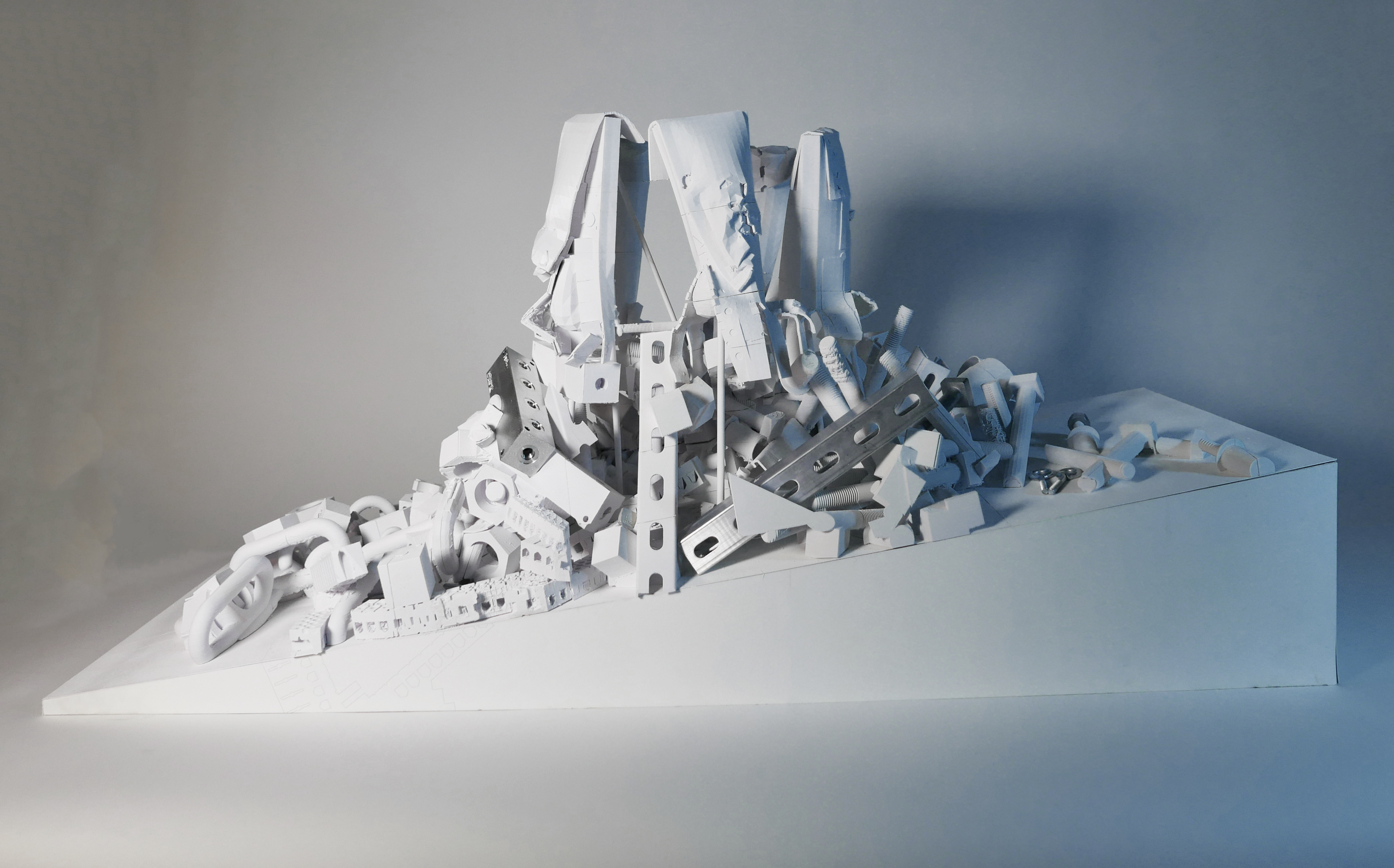A Mausoleum for Mr. McMaster
Collaborators: Nada AlQaddaf, Julia Roberts, Zach Weimar, Sampath Pediredla
Today we gather to celebrate the life of Mr. McMaster, and to dedicate his mausoleum. We will begin with a reading from Walter Benjamin’s The Origins of German Tragic Drama, from the Chapter “Allegory and Trauerspiel,” page one hundred and seventy eight:
That which lies here in ruins, the highly significant fragment, the remnant, is, in fact, the finest material in baroque creation. For it is common practice in the literature of the baroque to pile up fragments ceaselessly, without any strict idea of a goal, and, in the unremitting expectation of a miracle, to take the repetition of stereotypes for a process of intensification. The baroque writers must have regarded the work of art as just such a miracle. And if, on the other hand, it seemed to be the calculable result of the process of accumulation, it is no more difficult to reconcile these two things than it was for the alchemist to reconcile the longed for miraculous ‘work’ and the
subtle theoretical recipes. The experimentation of the baroque writers resembles the practice of the adepts. The legacy of antiquity constitutes, item for item, the elements from which the new whole is mixed. Or rather: is constructed. For the perfect vision of this new phenomenon was the ruin.
Mr. McMaster loved the objects in his catalogue. We all know he measured and sorted them endlessly. From the beginning, his impulse to collect was strong and his cataloguing techniques were rigorous, thorough, and – to those who did not know him – utterly and completely dry. We who knew him, though, know that even from the very first nuts and bolts his catalogue was full of emotion. It flowed from every number, every image of every object. It was the essence of him. traded goods, and have, in some sense, entered eternity. Over time, the catalogue grew. It ballooned to infinity as he worked feverishly to maintain its beauty. These objects, and their existence in this catalogue together, defined – and still define – Mr.
McMaster.


Thus, they sort themselves around him for eternity. They, in their arrangement and disposition, express the grief that all of us feel for this most sad of losses. In their grief the objects multiply, stretch, unfurl their skins are loose. In their grief they jitter and shake – they want to move but they must stand still. They desire closeness with their (Mc)Master. Those objects that are nearest him are reduced to their rawest emotions, their deepest state of grieving. Some are in denial, others angry or bargaining or depressed. Still other are accepting…although perhaps the least distressed of the bunch, they still recognize their – our – loss of Mr. McMaster. They are all in ruin(s). Or, perhaps this state of raw emotion is their most natural, most original state. They take on the burden of grieving, mourning our dear friend. They are torn, stuffed, folded. Perhaps this is the raw material from which Mr. McMaster’s objects come. They spill out, pile up, tumble away.



